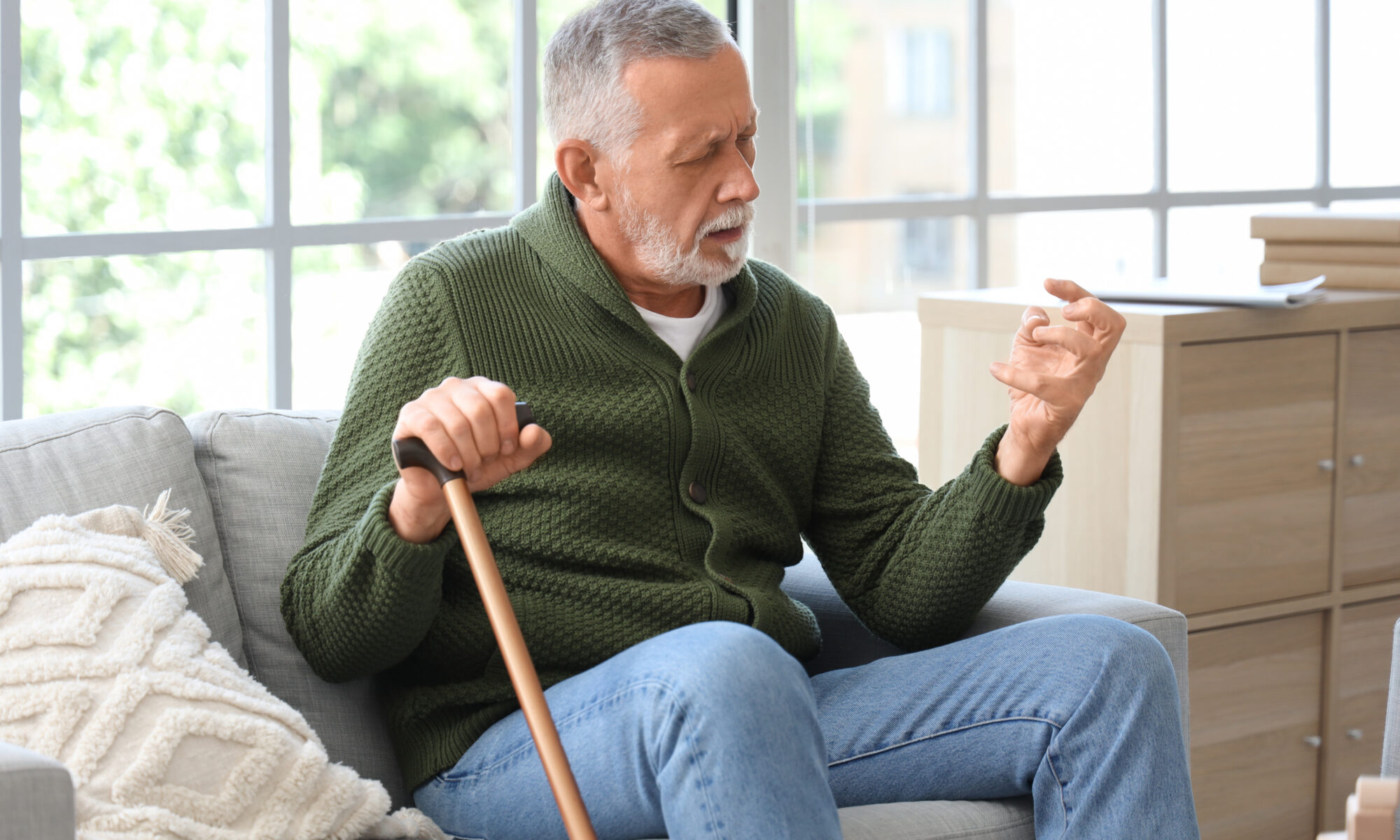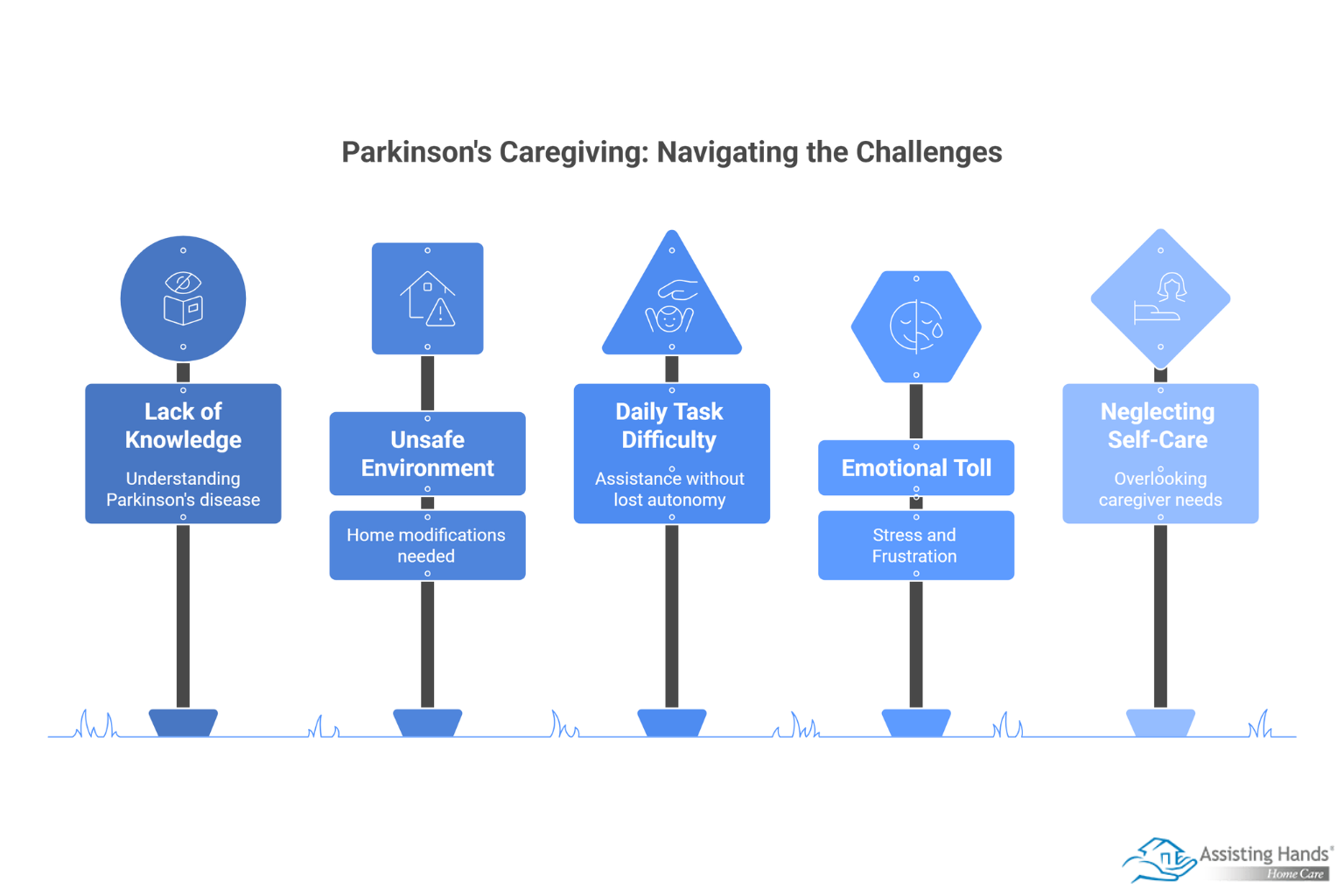
Table of Content
Being a family caregiver for a senior loved one with Parkinson’s disease can be both rewarding and challenging. This progressive neurodegenerative disorder presents unique obstacles, from motor difficulties to emotional changes. This blog explores practical ways to support your loved one while maintaining your own wellbeing.
Learn about Parkinson’s Disease
Educating yourself about Parkinson’s disease is the first step to effective caregiving. Parkinson’s primarily affects motor function due to a loss of dopamine-producing brain cells. Common symptoms include tremors, muscle rigidity, slowed movements, and balance issues. Non-motor symptoms, such as depression, anxiety, and cognitive changes, are also common and can affect quality of life.
Resources like the Parkinson’s Foundation or the Michael J. Fox Foundation offer extensive information, support networks, and updates on research advancements. By gaining knowledge, you’ll feel more prepared to manage the challenges that arise.

Create a Safe Home Environment
Making your home safer and more accessible can significantly increase your loved one’s independence and prevent injuries. Small changes can lead to big improvements.
- Reduce fall hazards – Remove rugs, electrical cords, or clutter that may cause trips and falls.
- Install grab bars and railings – Add grab bars in bathrooms and railings along staircases to provide stability.
- Ensure good lighting – Proper lighting reduces accidents and makes navigation easier, particularly in hallways and entryways.
- Furnish thoughtfully – Pick chairs with supportive armrests and tables that are sturdy to lean on if needed.
A well-planned home can minimize physical strain on you and help your loved one feel more confident.
There are a variety of age-related health conditions that can make it more challenging for seniors to live independently. However, many of the challenges they face can be easier to manage if their families opt for professional home care. Wilmington families can rely on expertly trained caregivers to keep their loved ones safe and comfortable while aging in place.
Assist with Daily Activities
Parkinson’s disease can make daily tasks like dressing, eating, and grooming increasingly difficult. Offering practical support without taking away independence is essential.
- Using adaptive tools – Assistive devices such as buttonhooks, weighted utensils, or slip-on shoes can make daily tasks more manageable.
- Meal prep and nutrition – Help your loved one prepare meals that are easy to eat yet nutritious. High-fiber foods may help with constipation, a common non-motor symptom.
- Physical assistance – Be patient and encourage slower movements when assisting with tasks like walking or dressing.
Remember to encourage your loved one to perform tasks independently whenever possible to maintain his or her sense of autonomy.
If your senior loved one has been diagnosed with a serious condition and needs help with tasks like meal prep, transportation, bathing, and grooming, reach out to Assisting Hands Home Care, a leading provider of in-home care families can trust. We also offer comprehensive care for seniors with dementia, Alzheimer’s, and Parkinson’s.
Manage Emotional Wellbeing
Parkinson’s affects more than physical health. It also impacts emotional and mental wellbeing. Both caregivers and individuals with Parkinson’s may experience stress, frustration, or sadness.
- Support your loved one’s emotional needs – Offer a listening ear and acknowledge your loved one’s feelings. If needed, consider consulting a counselor or psychologist specializing in chronic illnesses.
- Encourage social interaction – Isolation can lead to depression. Help your loved one stay connected with support groups, friends, or the community.
- Take care of your own mental health – Caregiving can be emotionally exhausting. Join caregiver support groups or seek therapy to help you process your emotions.
Caring for emotional health is just as crucial as managing physical symptoms, ensuring everyone feels supported.
Prioritize Self-Care as a Caregiver
While caregiving is an act of love, it’s easy to overlook your own needs. If you neglect your wellbeing, it becomes harder to care for someone else effectively.
- Set aside time for yourself – Take breaks to recharge, even if it’s just 15 minutes a day for a walk or a cup of coffee.
- Ask for help – Don’t hesitate to enlist the support of friends, family, or professional caregivers when you’re feeling overwhelmed.
- Focus on your health – Eat nutritious meals, exercise when possible, and prioritize sleep to maintain your physical health.
- Use respite care services – Consider utilizing respite care for temporary relief from caregiving duties.
Family caregivers need to care for their own wellbeing. If you’re caring for an aging loved one and are feeling overwhelmed, consider hiring a professional caregiver to provide respite care. Wilmington families who want to prevent burnout can turn to Assisting Hands Home Care. One of our professional caregivers can assist your loved one at home while you take a nap, go to work, run errands, or go on vacation. If your loved one needs professional care, Assisting Hands Home Care is here to help. To hire a compassionate, dedicated caregiver, call us today.





